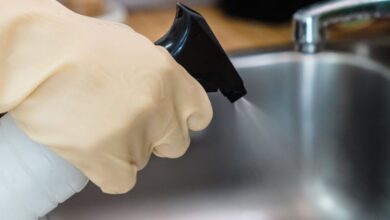What Are the Best Zero-waste Dish Sponges
As the movement toward sustainability gains momentum, many households are seeking ways to reduce their environmental impact. One essential yet often overlooked item in our kitchens is the dish sponge. Traditional sponges can contribute to landfill waste, but fortunately, there are eco-friendly alternatives that can help you maintain a clean kitchen while minimizing your carbon footprint. Let’s explore some of the best zero-waste dish sponges available today.
Natural Fiber Sponges
One of the most popular options for eco-conscious consumers is natural fiber sponges, made from organic materials such as cellulose, loofah, or coconut husk. These sponges are biodegradable, meaning they can break down naturally without leaving harmful residues behind.
Cellulose sponges are derived from wood pulp and are highly absorbent, making them perfect for tackling tough messes. They can be cleaned in the dishwasher or microwave for sanitation and reused multiple times before needing to be composted. Loofah sponges, which are harvested from the loofah plant, provide a scrubbing power that’s excellent for scrubbing pots and pans. After their lifespan, they can simply be tossed in the compost.
Coconut Coir Scrubbers
Coconut coir scrubbers are another outstanding choice for zero-waste dishwashing. Made from the fibrous husk of coconuts, these scrubbers are tough on grime yet gentle on surfaces. Their natural antimicrobial properties help prevent the buildup of bacteria, making them a hygienic option for cleaning dishes.
Unlike synthetic scrubbers, coconut coir is fully biodegradable. Once they’ve reached the end of their life, you can compost them without guilt. These scrubbers are perfect for those who prefer a bit more abrasiveness when cleaning, especially for pots and pans with stubborn food residue.
Beeswax and Cotton Scrubbers
For those who enjoy a more artisanal touch in their kitchen, beeswax and cotton scrubbers present a unique solution. These scrubbers are typically made from a combination of organic cotton fabric and beeswax, which gives them a water-resistant quality. They are soft, durable, and can be washed and reused several times.
These scrubbers work well for gentle cleaning, making them ideal for delicate dishes or non-stick cookware. When they’re no longer usable, they can be composted, ensuring that they do not contribute to landfill waste. Additionally, their aesthetic appeal makes them a lovely addition to any kitchen.
Reusable Silicone Sponges
Silicone sponges are a modern alternative that embraces sustainability without compromising on cleanliness. Made from food-grade silicone, these sponges are durable, flexible, and can withstand high temperatures. They do not absorb odors or stains, making them easy to clean and maintain.
Silicone sponges can be thrown in the dishwasher for a deep clean or boiled for sanitation. Although they are not biodegradable, their longevity makes them a worthwhile investment. With proper care, they can last for years, significantly reducing the need for disposable alternatives.
The Versatility of Dishcloths
Dishcloths are another zero-waste solution that can be used instead of traditional sponges. Made from organic cotton or linen, these cloths are highly absorbent and can be used for various cleaning tasks around the kitchen. They can easily be washed in the washing machine, ensuring that they remain hygienic and fresh.
Dishcloths can be versatile, serving not only as sponges but also as drying cloths or napkins. When they eventually wear out, they can be composted or repurposed as cleaning rags, making them an incredibly sustainable choice.
Final Thoughts on Sustainable Cleaning
Switching to zero-waste dish sponges is a simple yet impactful way to contribute to environmental sustainability. By choosing natural fiber sponges, coconut coir scrubbers, beeswax and cotton scrubbers, reusable silicone sponges, or versatile dishcloths, you can maintain a clean kitchen without adding to the waste crisis.
Each option offers unique benefits, allowing you to select the best fit for your cleaning needs and preferences. Embracing these eco-friendly alternatives not only promotes a greener lifestyle but also encourages others to join the movement towards a more sustainable future.







